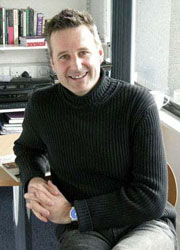Interview: Connect with society and people through music education - Guildhall Connect - No.1

How are musicians and conservatoires in the UK involved in the community?
We had an opportunity to interview Sean Gregory, one of the pioneers of creative musical workshops in the community based at the Guildhall School of Music and Drama in East London.The main activities of 'Connect' are hosting creative workshops, creating ensembles of young people in the community and Guildhall students, composing, improvising and arranging music together with their own ideas.
What are the ideas that support this project?
*Sean Gregory:Head of Professional Development Department,Head of Creative & Professional Practice Centre(Connect) at the Guildhall School of Music & Drama. He works as a composer, performer and creative producer throughout the United Kingdom and overseas.
No.1
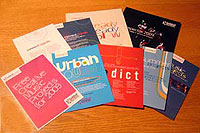
"'Connect' began as a project in 2001, but this work at the Guildhall began in 1984. In 1984, someone called Peter Renshaw began a new course at the Guildhall for students. This course focused on 'the role of musicians in society'. They were asking the questions 'Why are you training to be musicians?' Obviously, we are trained to be great musicians, great performers, great composers, whatever.. But what is the relevance of that training to society?
This course has grown and grown, and now we have the Professional Development Department. This department works with all undergraduate and postgraduate students. We give them the opportunity to go out, to perform, to teach and to lead workshops in schools and the community. We also have a Master's programme in Leadership. We are training these students to be musicians who can perform and compose music to a high standard, who can teach confidently, who can lead activities, who can lead workshops, and who can have ideas and make them happen as well. We also encourage as much collaboration as possible between students and children or adults in the community, artists in different areas like actors and dancers, and musicians of different styles of music.
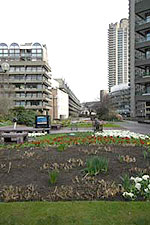
That's our work in the school. Now, 'Connect' is the activities outside the school. Over the last 20 or 25 years, we have built up a relationship with the community in East London, and have taken students and teachers into schools, community groups and hospitals, to give performances and also to run workshops where children have the opportunity to compose and create music using percussion instruments, their voices or their own instruments if they play, and build music up together with professional musicians.
Peter Renshaw also thought about this very hard, whether to start this project outside the established conservatoire, an established musical organization, or to start it inside it. In the end, he felt that, if you are going to change things and people's ideas and philosophy about why you do music and what music can be in society, you need to be inside organizations and establishments that are already involved in making music.
I think it's very important because when we introduce to established conservatoires like the Guildhall these new ideas which are more creative, more open, and maybe could be seen as quite strange in comparison to the traditional approaches, we need to make sure that everything we do is of high quality and musically and artistically strong. We want education and learning to be connected as far as possible to a good artistic experience, a good musical experience. And you have all these things within the conservatoire.
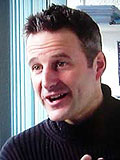
I was a student from 1988 to 1989 as a postgraduate on this new course that Peter had begun. Two years later I came back as Peter's assistant and then became a coordinator. When Peter retired in 2001, I became head of the department. It was at that time that we set up 'Connect'.
We had to raise money to get these activities going as a project, so we made a proposal to the governmental organization called Youth Music, that encourages music-making for young people, about developing 'Connect' by setting up ensembles of young musicians from different backgrounds based around East London to play different instruments, and create and perform their own music. And our teachers and our students at the Guildhall would help to make these ensembles happen. After 4-5 years of funding by Youth Music to help 'Connect' get started, the Guildhall decided that they would include 'Connect' in their main activities.
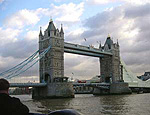
Because one of the most important parts of the work we do is about 'making connections'. We want our students at the Guildhall to make as many connections as possible, even if they are focused classical instrumentalists or jazz instrumentalists. We want our students to start to make connections between their training, their passion, their motivation to be very good performers, and the outside world. We want them to think about 'How can I use these skills I have? I have practiced and studied for many years, I'm a fantastic pianist, I can play my repertoire, but how do I connect that to the wider world, to society?'
And for young people or adults in the community, we want them to feel that they can make a connection with each other through working with small or big groups, and develop the music together. Also, we want to make a connection between the community and the Guildhall.
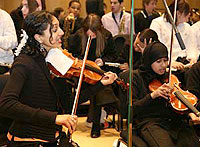
Yes. We want to reach as many young people as possible, and give them access to music. This could be the very young from toddlers through school age to give them their first experience. And then teenagers are very important because, as researches have shown, at that age, sometimes teenagers become less interested in music and playing instruments.
A lot of teenagers, if they are learning instruments, give up, and they don't want to do this anymore. But, at the same time, they are very interested in music. They listen to music all the time, maybe they come to dance, they do music on the computers. So there is a gap between the motivations of young people particularly teenagers who are interested in music and what music education provides.
We are trying to find a way of bridging this gap. We talk a lot about formal music education and that's one way of keeping music going. But there should be another way which is more about making music by yourself or in your group, or listening to your own music. We are trying to find ways through 'Connect' where we can capture that motivation, that interest, and bring those people together and also combine them with those who are doing it in a formal way.
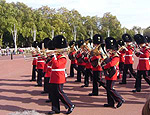
Precisely. In addition, a lot of the students are very clear and know 'I want to be in an orchestra' or 'I want to be a solo pianist', but there are others who come to the conservatoire and they are less sure about what they want to do after that. They start to have opportunities to work with 'Connect' and they see that they can put something back into that community and into young people.
Now, we have some examples who met us through the 'Connect' project 7 or 8 years ago and came through the Leadership programme at the Guildhall, and when they left school they became musicians and also went back to the community as a leader of 'Connect'. So we are creating a community of music practitioners. We have young people, students, graduates, experienced tutors, professional practitioners. In this community, we all compose together, perform together, and learn together. We don't stop learning no matter how experienced we are. It's not just that I'm the teacher and you are a student, and you are just learning from me. Teachers learn from young people. We feed each other all the time.
(Continue to No.2..)
Chigusa Futako

